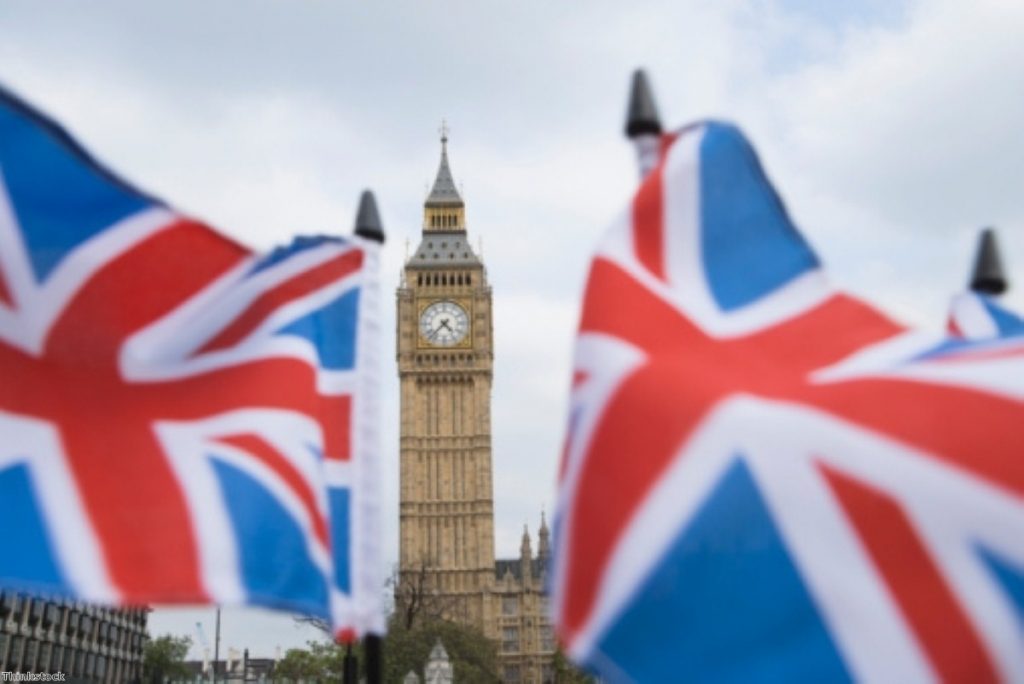Coalition won’t back down over independence referendum talks
By Alex Stevenson Follow @alex__stevenson
London might have agreed to talks with the Scottish government over the terms of the independence referendum, but a little-noticed clause in their establishment of the West Lothian Question commission suggests they're not planning on budging.
The two issues are, ostensibly at least, absolutely nothing to do with each other. Independence for Scotland is about a historic break with the United Kingdom which would see the end of Edinburgh's constitutional link with Britain for good. The West Lothian Question is about the way devolution works – and the unfair say Scottish MPs have over affairs which have literally nothing to do with their constituents.
But there is a link. Yesterday the government announced the terms of reference for the commission it has finally set up to examine the West Lothian Question. Their timing couldn't have been worse.


When the coalition was formed in 2010 the path the Scottish independence debate would take was far from clear. It was another 12 months before Alex Salmond's nationalists won an improbably overall majority in the Scottish parliament, giving them the mandate for a referendum. Even then, the coalition required nagging.
Had they moved quickly it might have been possible to get the commission's work underway before the cloud of the Scottish independence issue loomed overhead. Now, it is set to overshadow the work of the commission's six legal and constitutional experts as they consider what to do with the dilemma.
The West Lothian Question, as it is known, has been a rather awkward constitutional sticking point for years. It first came to prominence in 1977 when West Lothian's MP, Tam Dalyell, complained about local government legislation preventing him from voting about Blackburn in his constituency – despite the fact he was perfectly entitled to vote about matters in Blackburn, Lancashire (perhaps it should have been called the Blackburn Question, but that's by the by). Not much has been done about this issue in the meantime, despite significant devolution of powers away from Westminster to Holyrood, the Welsh Assembly and Stormont.
The terms of reference for the commission examining the issue are framed entirely in the context of devolutions gone past – this commission will proceed on the assumption that the Scottish people will vote 'no' to independence when the referendum comes.
But its timing is likely to be affected by the independence debate. The end date for the commission, which will report "in the course of the next parliamentary session", has been left deliberately vague.
It's thought this has been made to allow for uncertainty about the date for a referendum on Scottish independence, campaigners believe. Sources within parliament have told me that the end of the next parliamentary session is likely to be May or, at the latest, June 2013 – as you'd expect, given the coalition plans to have one-year sessions working backwards from the May 2015 general election.
Or, in other words, no more than 16 months from where we are now. The coalition, if it gets its way, would like to get the referendum out of the way within 18 months. So would the commission make its recommendations before or after the independence referendum takes place? That seems deliberately ambiguous for now, too – although I will ask the question to the constitutional minister, Mark Harper, tomorrow. Either way, the timeframe being looked at by the coalition remains 2013 – a long way off the autumn 2014 date Alex Salmond would prefer. The West Lothian Question might have revealed an answer of its own: the coalition isn't showing signs of budging an inch over the timing of the referendum, whenever it comes.









